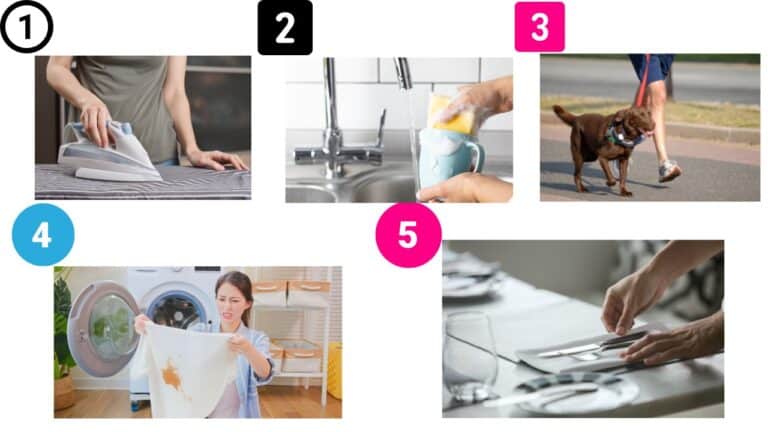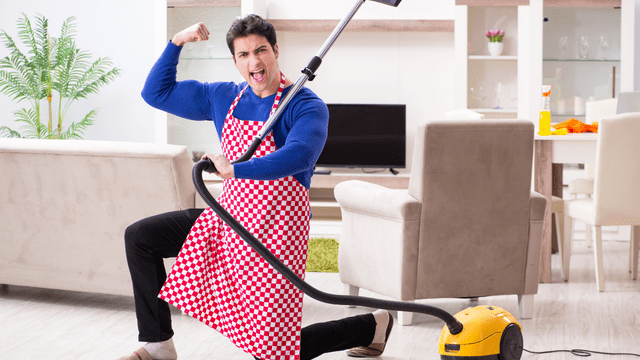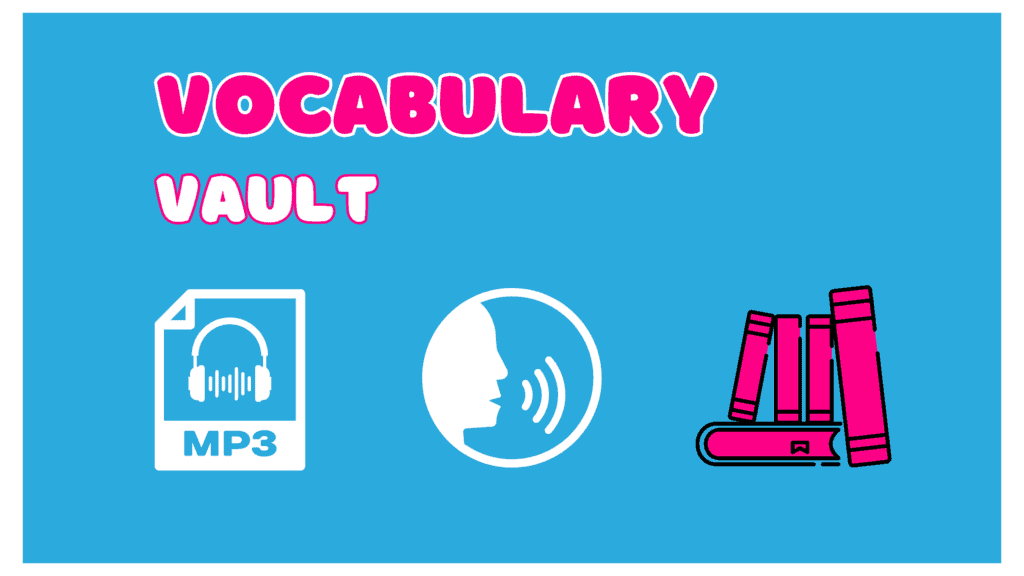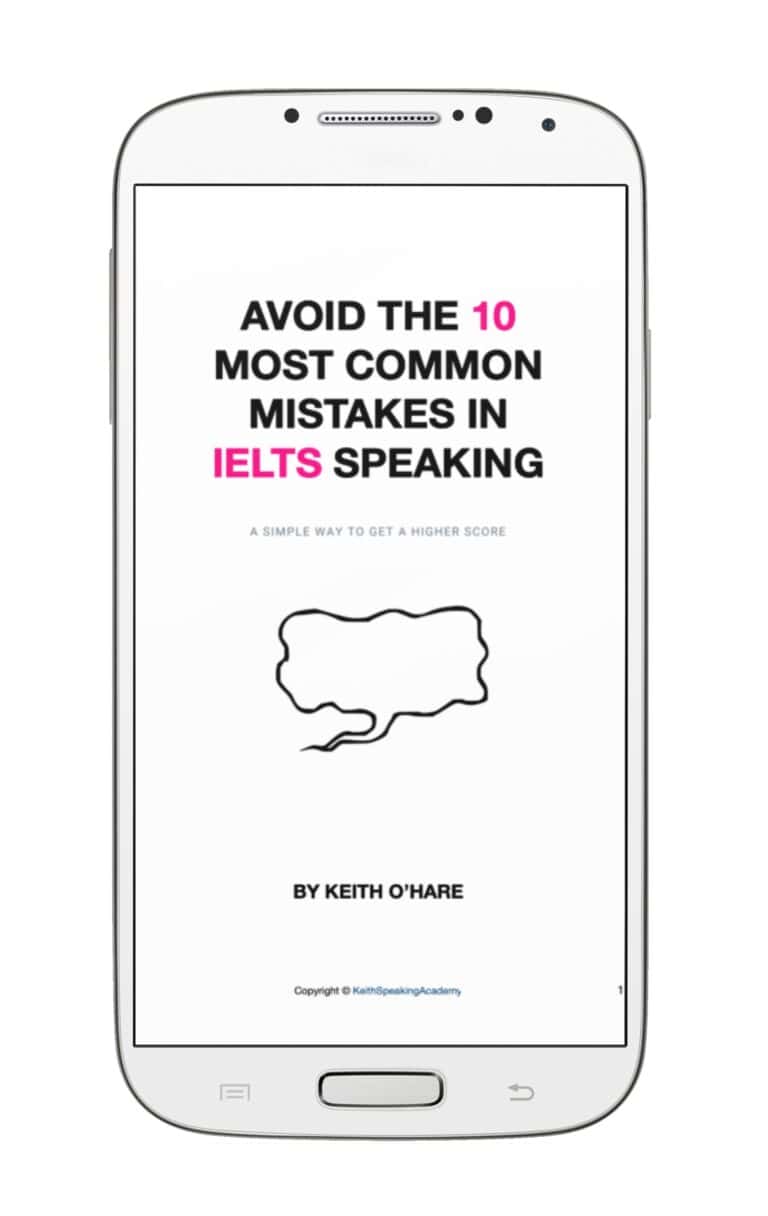IELTS Speaking Lesson about Housework
👇 Take this lesson with you! 👇
Table of Contents
IELTS Speaking vocabulary: Housework
Warm up!
Fill in the gap with one word
- I don’t like _____ the washing
- However, I do enjoy washing the _________
- Will you ______ out the rubbish?
See answers
- I don’t like doing the washing
- However, I do enjoy washing the pots, dishes, plates, car
- Will you take, throw out the rubbish
Housework or Homework?
- Do the housework (cleaning the house)
- Do your homework (studying)
Make or do?
Here is a simple ‘rule of thumb’ (= guideline)
We tend to use ‘do’ for work
- Do some work
- Do my homework (child at school)
- Do the housework (jobs to tidy the house)
- Do some tasks / chores (UK)
- Run different errands (US)
- Do some exercises
We tend to use ‘make’ for creating things
- Make a cake
- Make a plan
- Make friends
We sometimes use both:
Do the beds (tidy)
Make the beds (tidy)
Do dinner
Make dinner
It’s also good to try and learn these phrases by heart (=memorise)
It’s a real chore = something is hard work (often something you don’t enjoy)
Studying for IELTS is a real chore!
Common household tasks
What are these common household tasks?

See answers
- Do the ironing
- Do the dishes. Wash the dishes. Wash the pots (UK)
- Walk the dog
- Do the washing. Wash the clothes. Do the laundry
- Set the table. Lay the table
Other chores:
- Do/clean the windows (clean)
- Do the cooking
- Do the shopping
- Take out the rubbish / trash / garbage
- To do the housekeeping = to do the housework
We often use this expression “First, some housekeeping” at the beginning of a meeting and it means the small issues related to the meeting (toilets, finishing time, etc…)
Giving beautiful IELTS Speaking answers
1) Part 1: Talking in the past
Did you do some housework when you were young?
What is the mistake in this answer?
Yes, I often cook and sweep the floor
It should be in the past tense.
Yes, I often cooked and swept the floor
We can also use the following to express the past tense
Yes, I ____
- used to do….
- I would do… (habit)
- I did….
Yes, when I was a child I used to cook and sweep the floor
Yes, when I was a child I would cook and sweep the floor
Here are some more interesting ways of saying ‘Sometimes’.
- Once in a while
- Every now and then
- Now and again
- From time to time
Yes, I used to help out my Mum with the washing once in a while
Yes, I cooked and swept the floor from time to time
2) Part 1: Synonyms
Cooking
Do you want to learn how to cook really well?
The use of one or two synonyms in Part 1 can help boost your vocabulary scores, but don’t use too many.
To talk about skill, ability and learning, you can use the following as synonyms…
- To pick up the basics (learn informally)
- To hone my skills (improve / polish / sharpen my skills)
- To get the hang of (learn successfully a skill)
- To master higher level skills (to learn perfectly)
3) Part 1: Different tenses
Model Answer (from GOLD course)
Watch the model answer below and make a note of how many different tenses I use.
See answers
I actually use 4 different tenses
This is the ‘Magic Sauce’ for some Part 1 questions.
You can use this sequence of tenses to show off your grammar.
- Present Simple – I do cook
- Past Simple – I picked up the basics
- Present Perfect – I have honed my skills
- Conditional – If I had the chance, I would like to master
IELTS Speaking topic: Housework and homes
Which household chores do you like doing?
- I love tiding up my room
- I love to tidy up my room
- I like to vacuum my room
- I mop the floor as I like to keep it as clean as possible
- I have an aversion to most tasks = I hate
- I am keen on doing the laundry
- I am fond of cleaning my room, I can’t get enough of it
- I don’t like any household tasks
- I am reluctant to do any chores
Should everyone in the house do the housework?
- Everyone should pitch in
- Everyone has a role to play
- Teenagers should keep their rooms clean
- We should share the workload
- They can whole-heartedly help out at home
- I should take the load/the burden off my partner
- After work I can’t be bothered to do any housework (= I have no energy)

IELTS Speaking: Idioms about housework
- To pitch in = to contribute
Everyone at home should pitch in and help with the housework
- To be draining = to be very tiring
If I have to do all the cleaning at home, it is totally draining.
I find that mopping the floor is draining.
- To be spic and span = to be very neat and tidy
I clean on a daily basis because I like to keep my home spic and span
Pronunciation Files For Vocabulary From My Best Live Lessons
Use Words EASILY in English Conversations!
More Free Lessons
If you liked this lesson, leave a comment below!
There are more lessons you can follow in the links below too.
PATIENCE in IELTS Speaking. Useful collocations and vocabulary to help you discuss about patience.
STUDYING in IELTS Speaking. Learn the essential vocabulary for this topic, as well as how to talk about studying techniques.
FRIENDS in IELTS Speaking Listening practice about friends and essential vocabulary to talk about your friends.
COMEDY in IELTS Speaking Learn different types of comedy and idiomatic expressions related to comedy and jokes.


